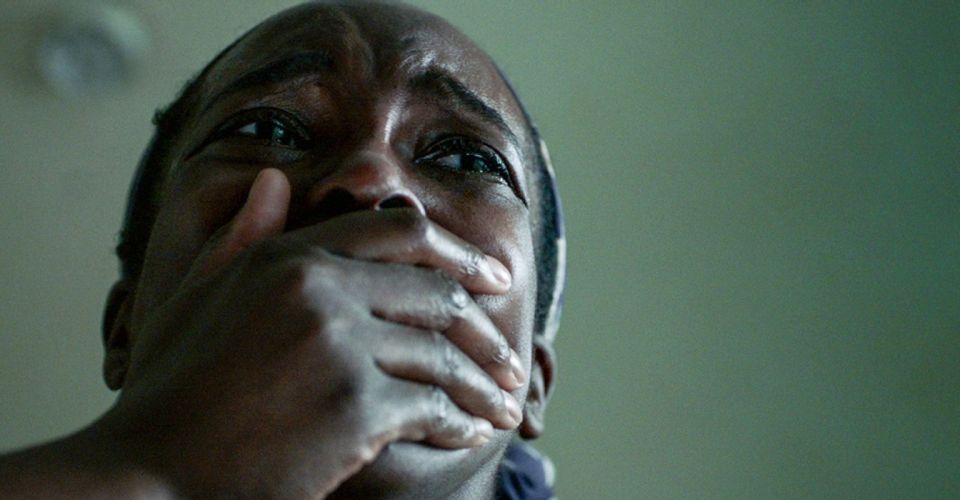His House: Why The Horror Movie Waited So Long To Show The Monster

In Netflix’s horror movie, His House, writer-director Remi Weekes’ decision to wait to reveal the monster coincides with the main characters’ coming to terms with more tangible demons. His House has the elements of a traditional ghost story, but the film is also a commentary about society’s often callous treatment of refugees. After spending months at a detention center — a place so bleak that another resident is seen attempting to commit suicide — a married couple from South Sudan, Bol (Sope Dirisu) and Rial (Wunmi Mosaku), are granted bail as asylum seekers. Their joy at being released is tempered by a trio of bureaucrats who treat them as criminals, outlining the strict guidelines they must follow or risk being deported.
The couple moves into a run-down housing project in a small English town, but despite the insects and squalor, they’re optimistic about starting a new life. Weekes wastes no time building the tension as Bol begins to hear strange sounds from behind the walls on the couple’s first night in the house. Rial and Bol escape a country rife with violence, but the trauma they suffer during their journey — chronicled through dreams, flashbacks, and hallucinations — is just as terrifying as the supernatural presence in their home. While most haunted house stories center around spirits tethered to a location, Bol and Rial bring their ghosts with them. The most malignant presence is one familiar to Rial, an apeth (night witch).
The apeth’s only appearance early in the movie is a glimpse of two gnarled dark hands. Rial’s account of the apeth and its powers sounds like an urban legend: a witch with the ability to conjure the dead and who can consume a man whole. The couple’s relationship starts to disintegrate as the apeth’s presence becomes more constant. Their apartment becomes claustrophobic as Bol locks them inside, and the audience can’t be certain that the trauma they’ve endured is manifesting as this creature or if it really exists. The apeth’s impending arrival portends a deadly showdown between husband and wife whose singular reactions to the apeth cause distrust and paranoia. Showing the apeth too early would pull focus from His House’s more terrifying storylines: the lies people tell to justify their darkest impulses and the cruelty humans arbitrarily inflict on one another. Rial is filled with resentment, and Bol plagued by guilt. The apeth forces them to come to terms with their emotions, culminating in the monster’s appearance in the movie’s penultimate scene.

Viewers still can’t be certain that Rial didn’t come up with the story as a way to torment her husband or that Bol isn’t experiencing a The Shining-like psychosis. It can also be taken at face value that nobody can hide from their mistakes. The best horror movies are ones that start a conversation once the lights go up, the characters resonating with the audience more than the monster. HisHouse follows in the footsteps of Get Out, using the genre to delve into the Black experience, but taking it a step further exploring what it means to be marginalized as an immigrant, particularly one of color. Many ghost stories are decidedly more stylized and flush with special effects to hold viewers’ interest. Weekes’ backdrop is intentionally bleak and desolate, and his characters aren’t isolated just because they’re held captive by a lie that manifests the apeth. They exist unseen because others say they don’t belong.
Alfred Hitchcock said, “There is no terror in the bang, only in the anticipation of it.” Movies like The Exorcist, The Conjuring, Rosemary’s Baby, Paranormal Activity, A Quiet Place, His House, and Jaws all subscribe to this philosophy. Sometimes all the audience is left with is whatever frightening thing they’ve conjured up in their imaginations. Even when there’s a payoff like a gigantic Great White shark that breaks the surface of the water, an alien bursting out of a man’s chest, or a witch emerging from underneath the kitchen floor, the events that follow are never as scary as the unknown that precedes them.
About The Author

















